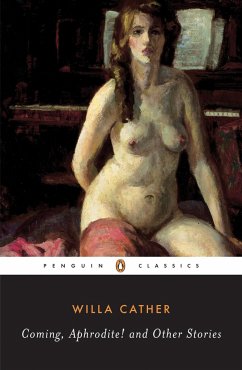After moving to Red Cloud, Nebraska, Willa Cather quickly embraced the mythology of the prairie states. Many of the stories in Coming, Aphrodite! are inspired by the townsfolk, rumors, and history she first encountered in her new home. "Peter" is based on the suicide of a bohemian farmhand named Frank Sadelek, a figure who haunted Cather's memory for many years; "The Sculptor's Funeral" portrays the disparity between an acclaimed artist and his "barbarian" neighbors; and "Old Mrs. Harris". a portrait of a woman who endured the hardships of farm life, can be read as a tribute to Cather's parents who followed their own version of the American dream. The stories "The Diamond Mine" and "Scandal" highlight Cather's views of the turn-of-the-century woman and are still admired for their insights on gender and modernity.
Hinweis: Dieser Artikel kann nur an eine deutsche Lieferadresse ausgeliefert werden.
Hinweis: Dieser Artikel kann nur an eine deutsche Lieferadresse ausgeliefert werden.








